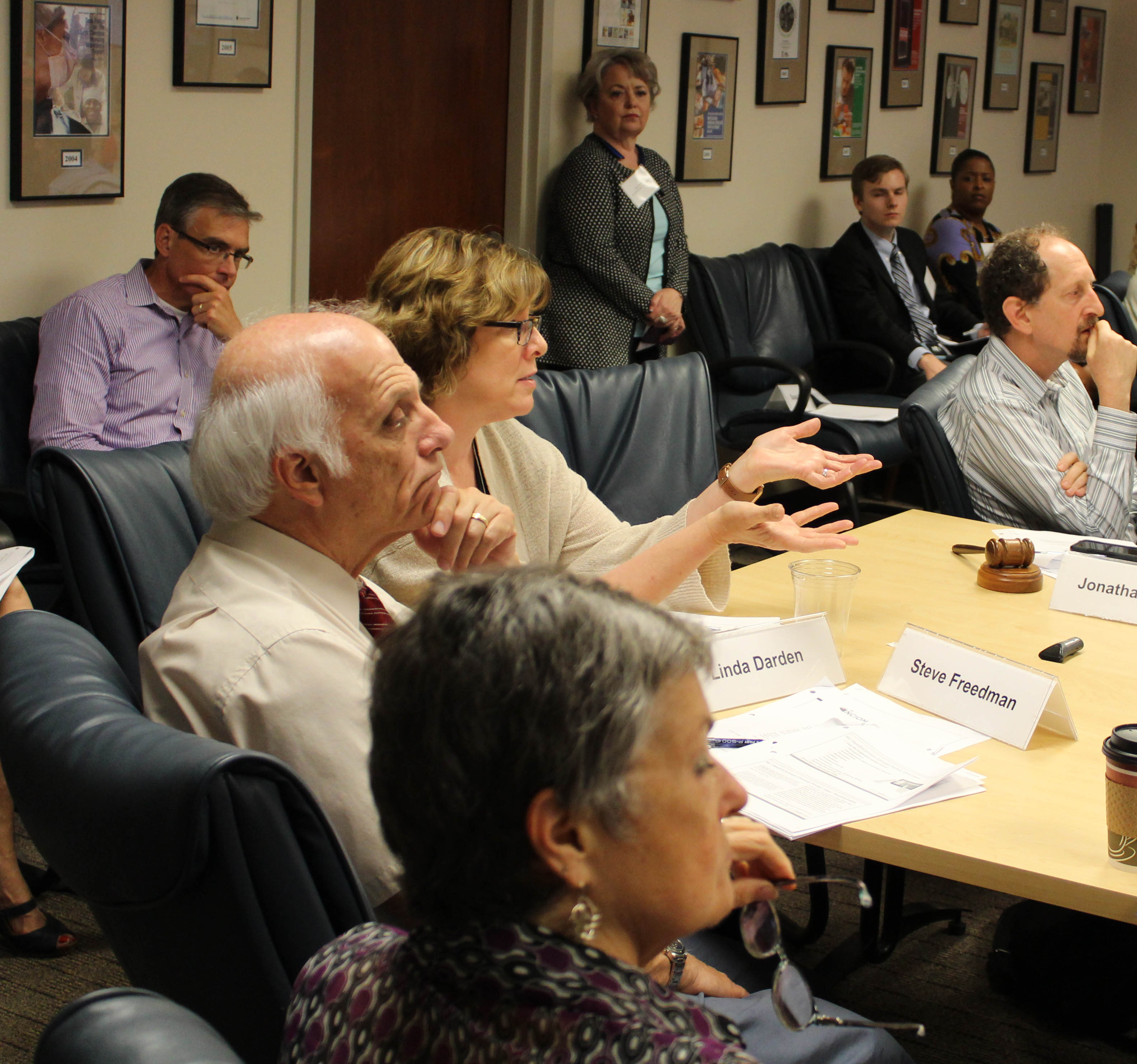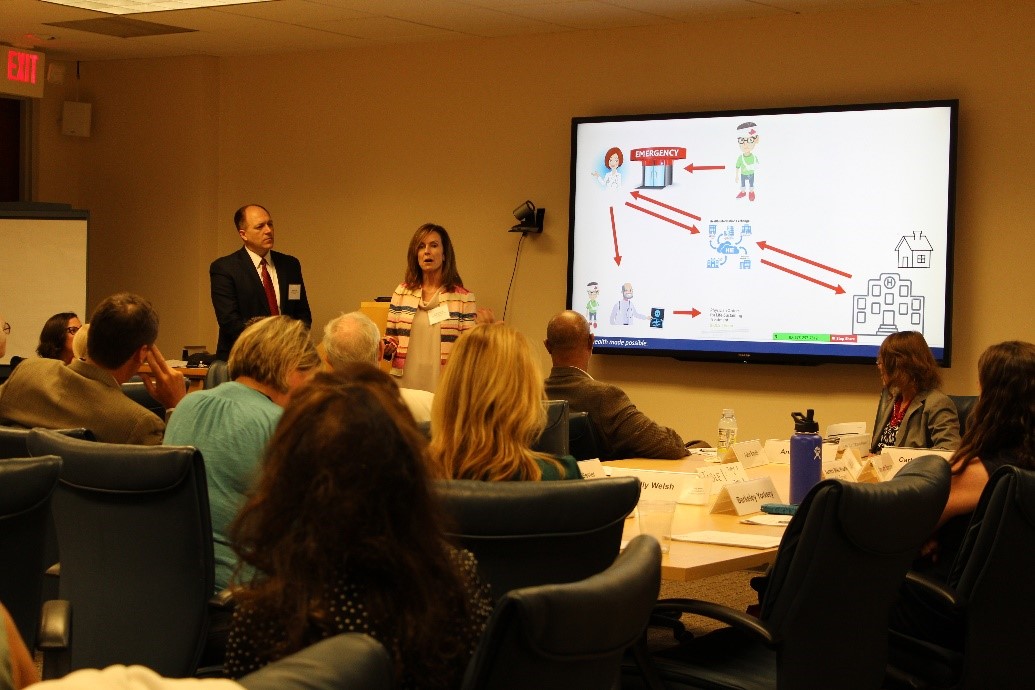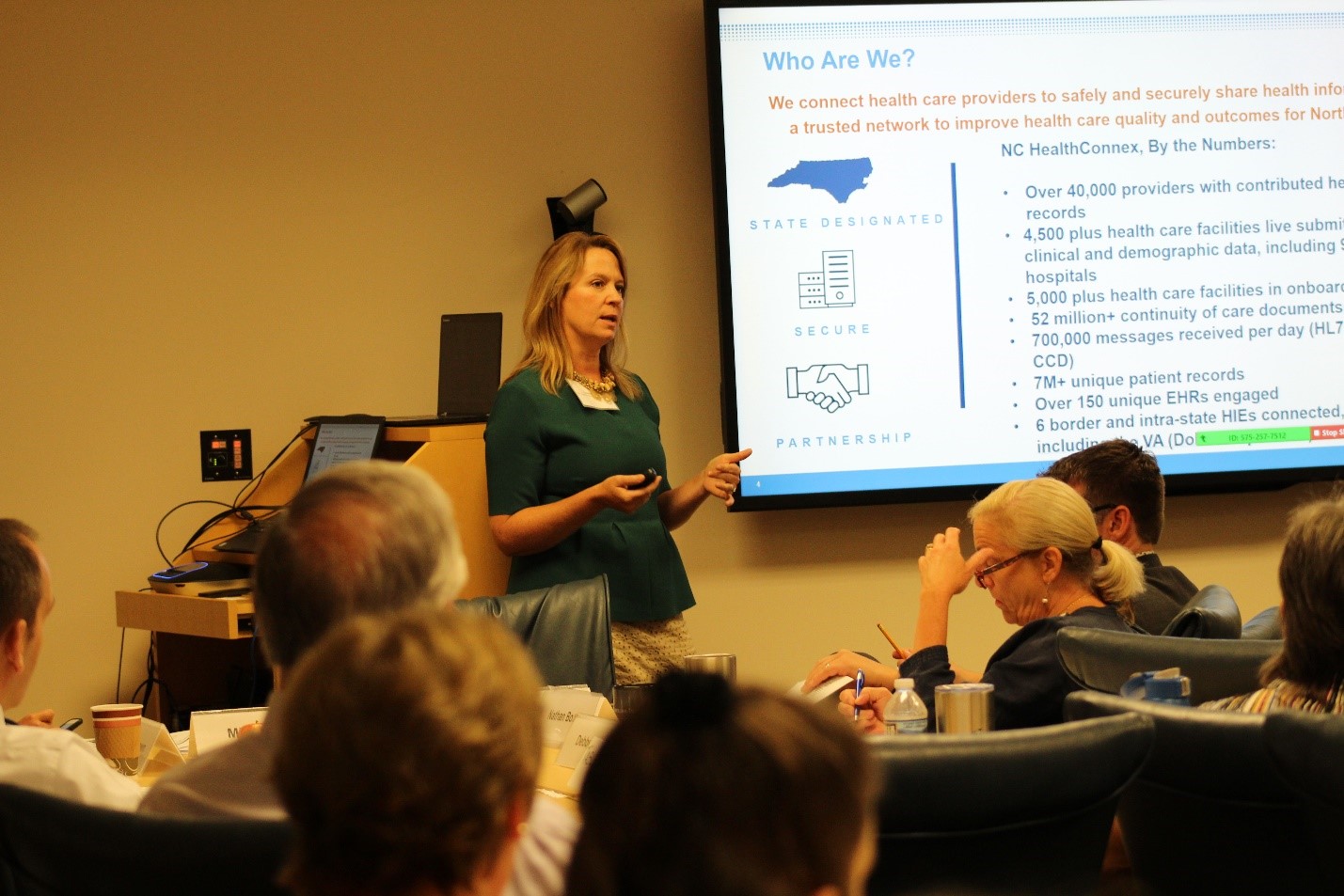


On July 12, members of the Task Force on Serious Illness Care met to discuss the technological challenges and opportunities surrounding communication between providers, seriously ill patients, and family caregivers. The meeting focused on examples of technology designed to facilitate communication between patients and providers, the role of collaboration in meeting best practices of communication, and the current state of technology-enabled health care communication in North Carolina.
Kenneth R. Deans, Jr., president and CEO of Health Sciences South Carolina (HSSC), a statewide health collaborative, and Christine M. Carr, chief clinical officer at HSSC, presented on the nonprofit organization’s efforts to find solutions to health information sharing across systems and the potential for improving communications issues in serious illness care. The most effective solutions for addressing communications challenges in this area, according to Deans, involve leveraging existing data. HSSC works with health systems and universities, including those in North Carolina. In South Carolina, many clinicians have access to real time clinical and other HSSC data, with the integration of HSSC data into health systems’ electronic health records. Deans and Carr highlighted the opportunity to use the HSSC, or similar data systems, to store and share advance directives, medical orders for scope of treatment (MOST), and other documents across systems.

Deans pointed out that North Carolina’s own health information exchange, NC HealthConnex, could be utilized for the same purpose. Christie S. Burris, executive director of the North Carolina Health Information Exchange (HIE) Authority, presented on NC HealthConnex, its clinical portal, and the NC HIE’s NC Notify system. She pointed out challenges, including that NC HealthConnex is still in its infancy, but agreed that in time NC HealthConnex may be able to serve this purpose.
David Sevier, managing director of The Generations Study Group, facilitated a discussion about the problems these technologies seek to solve, and how to best harness collaboration to address these problems.

Brian Wood of Mind My Health shared an example of a consumer-focused solution to making advanced care planning documents available at the point of care, increasing the number of people who discuss and complete advanced care plan documents and share them with loved ones, and working with health care systems to transfer advance directives into the electronic health record.
Cathy Sevier of AARP NC led a conversation about how to best address problems of communication in serious illness care, how removing stigma allows for easier discussion of serious illness, and how facilitating advance care planning can help improve end of life care. The group discussed action steps for improving communication and began to develop actionable recommendations centered on facilitating advance care planning, improving care delivery, developing consistent and accurate language, and supporting family caregivers. NCIOM Project Director Michelle Ries closed the meeting with a discussion about next steps.